- Home
- Helen Forrester
Yes, Mama
Yes, Mama Read online
HELEN FORRESTER
Yes, Mama
Dedication
To
Nora Walton (Sylvia Poole)
who was my friend when I most
needed one.
‘The prejudices remain within society,
within families and, above all, within the law.’
Virginia Ironside and Jane Horwood,
How can I explain to my daughter that
she isn’t a little bastard?
WOMAN magazine, November, 1986.
Contents
Cover
Title Page
Dedication
Epigraph
Chapter One
Chapter Two
Chapter Three
Chapter Four
Chapter Five
Chapter Six
Chapter Seven
Chapter Eight
Chapter Nine
Chapter Ten
Chapter Eleven
Chapter Twelve
Chapter Thirteen
Chapter Fourteen
Chapter Fifteen
Chapter Sixteen
Chapter Seventeen
Chapter Eighteen
Chapter Nineteen
Chapter Twenty
Chapter Twenty-One
Chapter Twenty-Two
Chapter Twenty-Three
Chapter Twenty-Four
Chapter Twenty-Five
Chapter Twenty-Six
Chapter Twenty-Seven
Chapter Twenty-Eight
Chapter Twenty-Nine
Keep Reading
About the Author
Also by the Author
Copyright
About the Publisher
Chapter One
I
Much to her mother’s annoyance, Alicia Beatrix Mary decided to be born on May 12th, 1886, during a visit to Liverpool of the dear Queen to open the International Exhibition of Navigation, Travelling, Commerce and Manufactures. On the day of Alicia’s slightly premature birth, the Queen was to drive down the Boulevard from Princes Park, on her way to St George’s Hall. As a result of Alicia’s arrival, her mother, Elizabeth Woodman, missed the chance of seeing her Sovereign.
Mrs Dorothea Evans, the wife of a Liverpool shipping magnate, had graciously invited Elizabeth to view the procession from her bedroom window, which faced the Boulevard. ‘If you wore a veil and a large shawl and came in a carriage, no one would realize your – er – condition. You could watch in absolute privacy from behind the lace curtains.’
Elizabeth had been thrilled by an invitation from such an eminent lady, who was herself to be presented to the Queen. She had looked forward to extending her acquaintance with Mrs Evans. She guessed that it would please Humphrey exceedingly if she were to make a friend of the wife of such an influential man – and Elizabeth knew that in the months to come, she would have to do a lot to mollify an outraged Humphrey Woodman, her husband of twenty-two years.
Between the painful contractions, as her forty-year-old body strove to deliver the child, she was consumed by anxiety, an anxiety which had commenced when first she knew she was pregnant.
Had Humphrey realized that the child was not his?
It was always so difficult to be sure of anything with her husband, she worried fretfully. He was so wrapped up in his multifarious business activities and the woman in the town whom he kept, that he rarely talked to his wife, never mind slept with her. But, of late, his usual bouts of temper had been so violent that she felt he must suspect her. And yet he had never commented on her condition.
Could it be, she wondered, that her huge skirts and swathing shawls had been a sufficient disguise, and that he had never realized her condition? She had found it difficult to believe, but she had still clung to the idea, hoping that she might miscarry. Now she prayed that, faced with a living child, he might use his common sense and accept it.
Peevishly, between gasps of pain, she commanded that the heavy, green velvet curtains be drawn over the ones of Nottingham lace. ‘The sunlight’s hurting my eyes,’ she complained to the midwife. Mrs Macdonald, a stout, middle-aged woman in an impeccably white apron and long, black skirt, sighed at her difficult patient and hauled the heavy draperies over the offending light. The huge, brass curtain rings rattled in protest.
‘I’ll need some more candles, Ma’am.’
‘Well, ring for them,’ panted Elizabeth.
‘Yes, Ma’am.’ Mrs Macdonald went to the side of the fireplace and tugged at the green velvet bell-rope.
Though the bell rang in the basement kitchen, the distant tinkle was answered immediately by Fanny, a skinny twelve-year-old skivvy, who had been posted outside the door by Rosie, the housemaid, with orders to bring any messages from her mistress to her while she snatched a hasty lunch in the basement kitchen.
The child opened the bedroom door an inch, and hissed, ‘Yes, Missus?’
‘Fanny, tell Rosie to bring us some more candles immediately and make up the fire,’ ordered Mrs Macdonald. ‘And bring another kettle of water – and a trivet to rest it on.’
‘I’ll do fire afore I go downstairs.’ A hand with dirt-engrimed nails gestured through the narrow opening of the door, towards the brimming coal scuttle by the fireplace.
Mrs Macdonald was shocked. ‘Good gracious me, no! A young one like you can’t come in here. Send Rosie up to do it.’
‘Ah, go on with yez. I’elped me Auntie last time.’
‘Don’t be so forward, young woman,’ snapped the midwife. ‘Get down them stairs and tell Rosie.’
‘She int goin’ to like doin’ my job. Fires is my job.’ Fanny shrugged, her thin lips curved in a grimace as she turned to do the errand. She was stopped by the sound of a querulous voice from the bed. ‘Mrs Macdonald, ask Fanny if Miss Florence has arrived yet – or Miss Webb. Or Mr Woodman?’ The voice sounded flustered, as Elizabeth named her husband.
‘Nobody coom to the front door, Ma’am, not since doctor coom an hour ago,’ piped Fanny.
‘Where is everybody?’ muttered Elizabeth exasperatedly. She moaned, as another bout of pain surged up her back and round her waist.
Mrs Macdonald answered her soothingly. ‘It’s early hours, yet, Ma’am. There’s no hurry. Just rest yourself between the pains.’
Elizabeth grunted, and clutched the bedclothes. The thud of Fanny’s big feet on the long staircase seemed to shake her and added to her fretfulness. Would the girl never learn to walk lightly?
Mrs Macdonald picked up a clean sheet and leisurely began to wind it into a rope. She looped this over the mahogany headrail and laid the twisted ends beside Elizabeth’s pillow, so that her patient could pull on it when the need to bear down became intense. On the bedside table by the candlestick lay a new, wooden rolling-pin; Mrs Macdonald knew from experience that mothers giving birth needed something to clutch when their pains really began.
‘Dr Willis should have stayed; he knows I need him,’ Elizabeth complained, as the surging misery in her stiff body subsided.
‘He promised to look in again in a couple of hours, Ma’am. Would you like a cup of tea, Ma’am?’
‘I’d rather have a glass of port.’
‘I wouldn’t advise it, Ma’am. It might make the baby sleepy.’
Elizabeth sighed. ‘Very well. I’ll have tea.’
‘That’s better. I’ll make a good, strong brew.’
Mrs Macdonald moved through the shadowy room to the fireplace to put a small, black kettle on to the fire. On a side table, lay a tray with a flowered teapot, a tea caddy and cups and saucers. The midwife liked to have tea handy and not be dependent upon a far-away kitchen. Tea always diverted a patient, made them feel that something was being done for them.
A soft knock at the bedroom door annou
nced the arrival of Rosie, the housemaid, bearing a kettle of water and a brass trivet. Several long white candles stuck out of her apron pocket. She had not yet finished her lunch, and was cursing her employer under her breath, as she waited for Mrs Macdonald to bid her come in.
As she entered, Rosie composed her face. She handed the kettle, trivet and candles to the midwife and then made up the fire. She made a polite bob towards the bed and turned to leave.
‘Rosie,’ called Elizabeth from the depths of her supporting pillows.
‘Ma’am?’
‘Tell Maisie to show Miss Webb straight up when she arrives. You will all take your instructions from her. I also want to see my daughter, Mrs Browning, when she comes. Tell Cook that both ladies will probably be here for dinner.’ Elizabeth paused to take a big breath as a stab shot through her abdomen. Then she went on, ‘And, Rosie, none of the servants is to leave the house without Cook’s permission.’ She twisted suddenly in the bed and arched her back. ‘Ah!’ she cried.
Waiting to be dismissed, Rosie stood woodenly facing her, while the spasm passed. ‘Blow her,’ she thought, ‘just when I were thinkin’ I could nip out a few minutes to see the Queen. And Miss Webb is a single lady – she won’t want to come into a birthing room, any more’n she’d want to look into a midden full o’ garbage.’
Mrs Macdonald wrung out a cloth in cool, scented water and began solicitously to wipe the patient’s face. Elizabeth pushed her impatiently aside. ‘Has Mrs Ford come?’ she gasped to Rosie.
‘Yes, Ma’am. She’s bin waitin’ in the kitchen this past three hours.’
‘Send her up – I’ll see her – while I still can,’ Elizabeth ordered pessimistically.
II
Mrs Polly Ford was a widow, aged twenty-three. Six weeks before the Queen’s visit, her husband, a docker, had fallen into the hold of a ship and had died, almost immediately, of his multiple injuries. Two nights later, in her parents’ crowded cellar dwelling, his frantic widow had given birth to her first child.
Born on to a pile of rags in a windowless, waterless, heatless home, without even a clean sheet to be wrapped in, the baby boy had decided, three weeks later, that life was not worth living and had quit it. Polly wished passionately that she had been allowed to follow him. She was, however, a strong, healthy woman and, despite her despair, her milk surged in her.
Weeping helplessly, she had sat by a tiny fire lovingly built for her by her father, James Tyson. He had walked down to Seaforth sands to search for driftwood, in order to provide a little heat for her.
‘We didn’t know the babe was goin’ to come so quick – or be born here – and we run out of coal and money,’ he told her almost apologetically, his bearded face turned up towards her, as he knelt to feed the flames with chips from an old railway sleeper which he had found on the shore.
‘I know, Dad,’ she told him gently between her sobs. ‘You shouldn’t’ve took the wood from the sands – you could’ve been arrested for it.’
‘Och, I know that. Devil take the bleeders!’ He got up off his knees and stood leaning against the rough, brick chimney, the firelight catching the golden hairs of his beard and eyebrows. ‘What you goin’ to do now, duck?’
Her mother, Bridie Tyson, had been sitting beside Polly on the backless bench. Wrapped inside her shawl, to keep him warm in the foetid cellar of the court house, lay Billy, Polly’s baby brother. His wide brown eyes glittered, as he peeked out of the enveloping shawl to watch the dancing flames of the fire. Now his mother sighed, and asked, ‘Aye, what to do?’
‘She can stay with us,’ responded her husband immediately.
‘Aye, Dad, you’ve got enough trouble without me,’ Polly told him.
She looked helplessly round the tiny room, dimly lit from the open door leading to the steps up to the court itself. Down those steps, on wet days, trickled sewage from two overflowing earth lavatories which served the fourteen houses surrounding the court, to add to the overwhelming misery of the ten people living in her parents’ windowless room below ground level. But her father was a casual labourer on the docks, and this, though he was as good a man as ever heard a Wesleyan sermon, was the best he could provide for his family from his irregular earnings. Also living with him was his widowed sister-in-law and her five children.
Polly’s aunt had been sitting, almost unnoticed, on a three-legged stool tucked up by the fireplace. Under her black shawl, her stomach was swollen with pregnancy. She cackled suddenly, ‘Youse wet with milk. You could mebbe wet-nurse.’
Polly’s breasts ached with milk. She had let her little brother, Billy, suckle from her to ease the pain, but still the milk pressed within and damped her calico dress.
‘Some fine lady’d pay good for that – and you’d be well fed to keep it up,’ her aunt went on.
‘Aye, you’d live the life o’ Riley,’ her mother agreed eagerly.
James Tyson looked down at his womenfolk and shrugged. This was woman talk, and, anyway, it was time to go down to the dock gate again, to stand in the rain and hope to be picked out for half a day’s work. He patted Polly on the shoulder as he passed, and left them to it.
Through a grapevine of female cousins and aunts, inquiries went out to ask anyone in service whether their mistresses were expecting.
From Fanny, the little skivvy in the Woodmans’ house, came the information via her aunt, that the Missus was expecting any day and was proper mad at it. In Fanny’s considered opinion and judging from the gossip in the kitchen, she would be glad enough to be relieved of feeding the expected child and of looking after it; its nearest brother, Master Charles, was ten years old and had gone away to boarding school. His nurse had long since been let go.
On her Sunday afternoon off, Fanny visited her aunt in her tiny house in Shaw’s Alley and confided to her that a real blow-up about the child was expected daily, between her Master and Mistress. ‘It int his kid,’ Fanny told her. ‘And he’s got a temper like you’d nevaire believe. Always pickin’ on her, he is – and yet he can’t talk – he took up with a woman as keeps a tobacco and sweets, back o’ Water Street, downtown.’
Fanny bent to wring out a rag in a pail of cold water and reapplied it to one of her aunt’s eyes, which her husband had blackened the previous night. Her aunt was hardly listening to her niece; she was wondering dully if, after last night, she would be in the family way again, and she sighed at the very thought of it. It would be the fifteenth and, out of the whole bloody issue, only three of them full grown.
Wearily, she tried to give her attention to what Fanny was saying, and replied, with pity, ‘Well, you talk to Rosie and Mrs Tibbs about Polly Ford. The poor gel is broken-’earted and ’er Mam is near out of ’er wits over it.’
III
While Elizabeth Woodman’s affairs were discussed in one of Liverpool’s worst slums, Elizabeth herself had wandered round her handsome Upper Canning Street house through the last days of her pregnancy, and viewed with dread the birth of her child.
She had done her best to get rid of the child. She had drunk bottle after bottle of gin and had sat for hours in hot baths, while Fanny stoked up the kitchen fire to heat the water in the tank behind it, so that Elizabeth could keep renewing the water in her fine mahogany-encased bath in the bathroom. To no purpose.
She had even contemplated throwing herself down the main staircase in order to dislodge the foetus, but when she had looked at the steepness of the flight her courage had failed her.
She watched with horror her expanding figure and worried at her husband’s complete lack of comment about it. As the months went remorselessly by, his silence began to terrify her. They had not slept together for months. He must know it’s not his, she agonized. Is he going to ignore the fact or will he throw me out at some point? And where shall I go? What shall I do?
Perhaps it will be born dead, she thought hopefully. Then he won’t have to say anything.
But Alicia Beatrix Mary had no intention of being born dead; Elizabeth,
Polly and Fanny would all have their lives totally altered by her existence.
Chapter Two
I
Fanny consulted Rosie, the Woodmans’ housemaid, about Polly. Rosie spoke to Mrs Martha Tibbs, the cook-housekeeper, an unmarried lady graced with the appellation of a wife because it was the custom.
In consideration of receiving Polly Ford’s first month’s wages, if she got the job, Mrs Tibbs graciously agreed to broach the subject of a wet-nurse with Elizabeth Woodman. Since nothing had been said to the domestic staff about the impending addition to the family, Mrs Tibbs went about the matter very delicately.
Bored to tears by three months’ confinement during the more obvious period of her pregnancy, anxious to keep the child away from her husband as much as possible, assuming it were born alive, Elizabeth was almost grateful to Mrs Tibbs and agreed to look at Polly.
It took the efforts of all her extended family to make Polly look respectable for the interview. She had a black skirt in which she had been married. A black bodice was borrowed from a distant cousin down the street; she had had it given to her by the draper whose tiny shop she cleaned. It had been eaten by moths at the back, but with Polly’s own black shawl over it, the holes would not show. A battered, black straw hat was acquired for a penny from a pedlar of secondhand clothes, after hard bargaining by Polly’s married sister, Mary. Polly’s mother washed and ironed her own apron to an unusual whiteness, so that Polly could wear it for the occasion. Polly had boots, though they were worn through at the bottom and were bursting round the little toes. ‘I’ll keep me feet under me skirt,’ said Polly dully.
Through all these preparations, Polly wept steadily. At her mother’s urging she suckled little Billy. ‘It’ll nourish ’im and it’ll keep the milk comin’, luv,’ her mother consoled her.
It was comforting to hold the small boy to her. Though as grubby as a sweep, he was a merry child, who laughed and crowed and tried to talk to her.

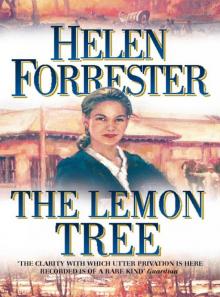 The Lemon Tree
The Lemon Tree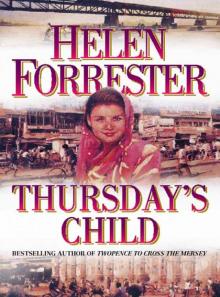 Thursday's Child
Thursday's Child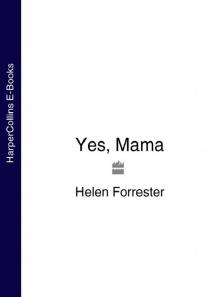 Yes, Mama
Yes, Mama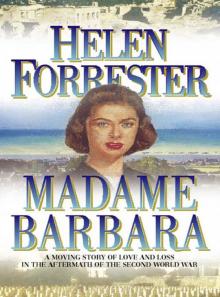 Madame Barbara
Madame Barbara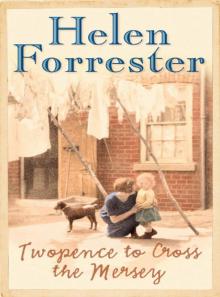 Twopence to Cross the Mersey
Twopence to Cross the Mersey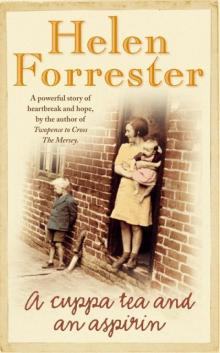 A Cuppa Tea and an Aspirin
A Cuppa Tea and an Aspirin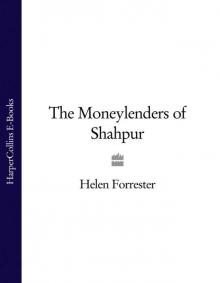 The Moneylenders of Shahpur
The Moneylenders of Shahpur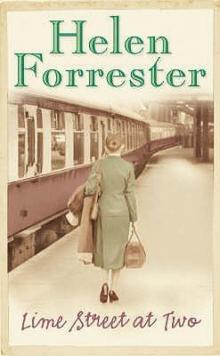 Lime Street at Two
Lime Street at Two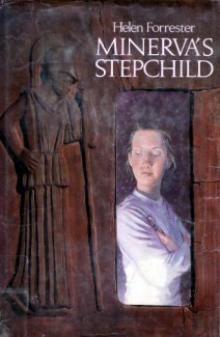 Minerva's Stepchild
Minerva's Stepchild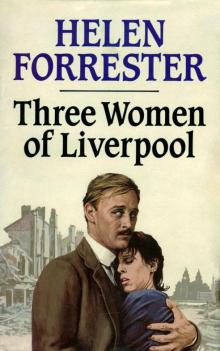 Three Women of Liverpool
Three Women of Liverpool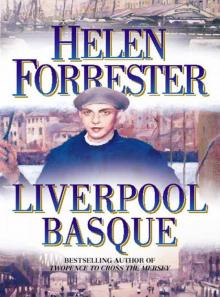 The Liverpool Basque
The Liverpool Basque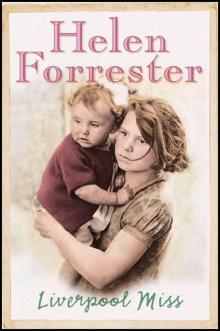 Liverpool Miss
Liverpool Miss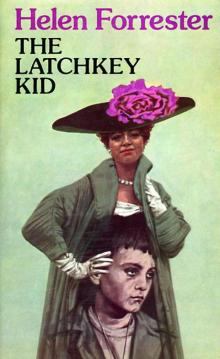 The Latchkey Kid
The Latchkey Kid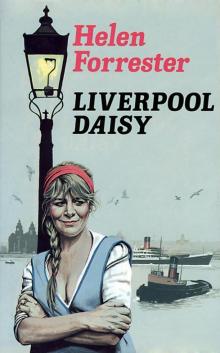 Liverpool Daisy
Liverpool Daisy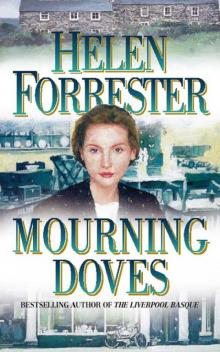 Mourning Doves
Mourning Doves